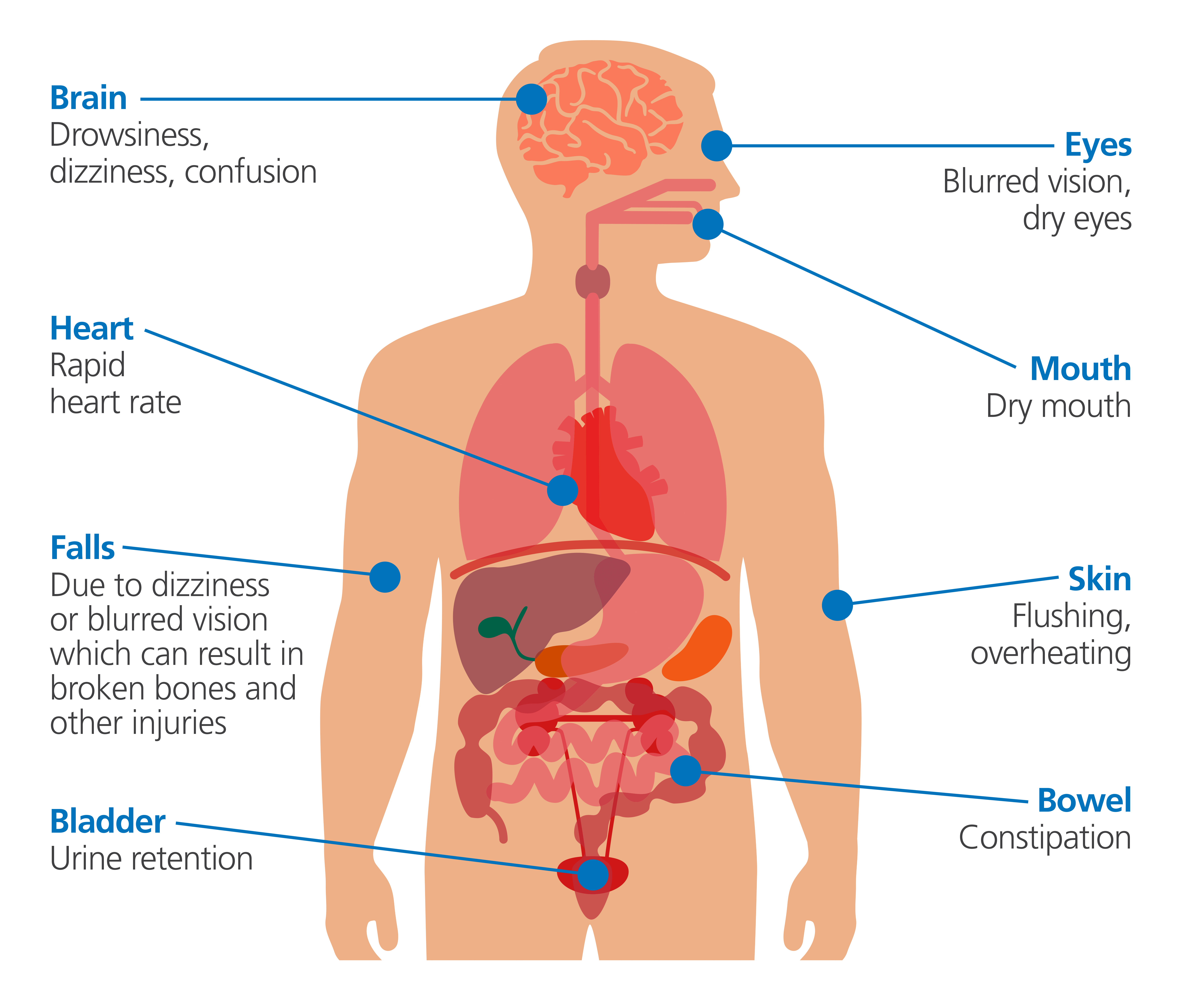If you are already taking an anticholinergic (spoken as ‘anti-co-lin-er-jick’) medicine to help your symptoms or your doctor, nurse or pharmacist has suggested that you start taking one, the following information will help you decide if this is the best option for you.
This information is also available as a leaflet and in easy read format:
There is also this anticholinergic guidance for clinicians
Anticholinergic medicines podcast
In this podcast, Sarah Mitchell-Gears and Eleanor Barnes talk about anticholinergic medicines. They discuss in detail all the information covered on this web page. This includes what anticholinergic medicines are used for and the possible side effects. There is also a transcript of the anticholinergic medicines podcast that you may find helpful. Sarah is the principal pharmacist for older people’s mental health working for Bradford District Care Trust. She also chairs the West Yorkshire Anticholinergic Burden Task and Finish Group. Eleanor is the lead clinical pharmacist for a 16 practice GP federation in Bradford. She leads a team of 30 pharmacists and pharmacy technicians to deliver medication and prescription management services in general practice.
What are anticholinergic medicines?
Acetylcholine is a chemical used in many parts of your body. It helps you stay alert, keep a steady heart rate, breathe, digest food, sweat and empty your bladder. Medicines that work by blocking the action of acetylcholine are called anticholinergic medicines, they include:
- Bladder control medicines such as oxybutynin, tolterodine, solifenacin and trospium
- Antidepressants such as paroxetine and amitriptyline
- Allergy medicines such as chlorphenamine (Piriton for example) and hydroxyzine
- Medicines for nerve pain such as amitriptyline and nortriptyline
- Non-prescription sleeping tablets such as diphenhydramine (Nytol for example) and promethazine (Night Nurse for example).
Are there any side effects of anticholinergic medicines?
Yes. Acetylcholine is a chemical used in many parts of your body. When you take a medicine that blocks the action of this chemical, other parts of your body are affected at the same time. Possible side effects of taking these medicines include:
- drowsiness, dizziness or confusion
- blurred vision
- falls (for example due to muscle weakness, dizziness or blurred vision) which can result in broken bones and other injuries
- a rapid heart rate
- urine retention (when your bladder doesn’t empty completely)
- dry eyes
- dry mouth
- skin flushing (redness)
- overheating (feeling hot)
- constipation
What are my risks of getting side effects?
The older we get the more at risk we are of getting side effects from these medicines. As we get older, our liver and kidneys don’t handle medicines as well as they used to, so we become more sensitive to them.
The more medicines a person takes, the more likely it is that they will have unwanted side effects. As many older people have more than one health condition and may take one or more of these medicines, this adds to their risk of getting side effects.
You may also be at higher risk of getting side effects if you are taking a high dose of this type of medicine, or if you take the medicine for a long time.
Do anticholinergic medicines increase the risk of dementia?
Older people who use these medicines for a long time, or at higher doses, may have a higher risk of dementia. This is why older people should be careful about the number of these medicines they take and use the lowest dose for the shortest length of time.
Can I lower the risk of getting side effects from anticholinergic medicines?
Talk to your doctor, nurse or pharmacist and ask if any of the medicines you take have these effects. Don’t forget to include medicines you have bought at a pharmacy or supermarket. You can print out this anticholinergic medicines leaflet, which contains all the information on this page, and take it with you if that helps.
Always talk to your doctor, nurse or pharmacist before stopping or changing any medicines.
This information was produced by the West Yorkshire Integrated Care System Anticholinergic Burden Task and Finish Group. Thanks to the Canadian Medication Appropriateness and Deprescribing Network for permission to adapt their information for our use. Original content by Janet Currie and Johanna Trimble. Thanks also to Bath and North East Somerset, Swindon and Wiltshire Integrated Care Board for permission to adapt their design.

